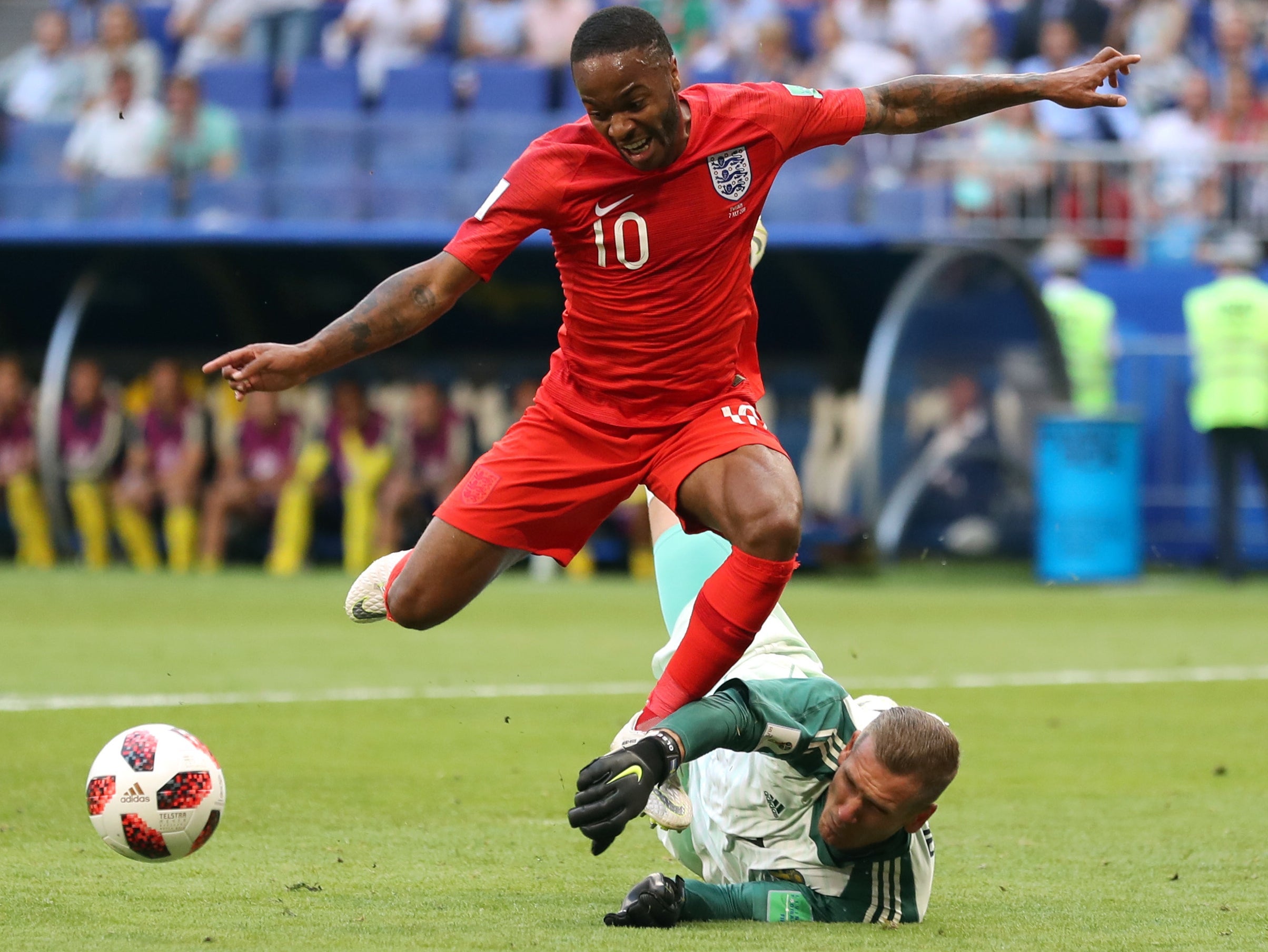World Cup 2018: England’s plan A is yet to flourish since Panama – but does it matter when plan B is so effective?
The curiosity is that England, so professional and controlled in winning what was – being objective – a damp squib of a match, never really caught light

Your support helps us to tell the story
From reproductive rights to climate change to Big Tech, The Independent is on the ground when the story is developing. Whether it's investigating the financials of Elon Musk's pro-Trump PAC or producing our latest documentary, 'The A Word', which shines a light on the American women fighting for reproductive rights, we know how important it is to parse out the facts from the messaging.
At such a critical moment in US history, we need reporters on the ground. Your donation allows us to keep sending journalists to speak to both sides of the story.
The Independent is trusted by Americans across the entire political spectrum. And unlike many other quality news outlets, we choose not to lock Americans out of our reporting and analysis with paywalls. We believe quality journalism should be available to everyone, paid for by those who can afford it.
Your support makes all the difference.England had a plan, but who needs an element of surprise when the tried and trusted is working so well? Had Raheem Sterling scored when he ran, not for the first time, beyond Sweden’s back line before blinking in front of Robin Olsen then the fruits of all that pre-match planning would have been laid out on view. Instead England took what is now a more familiar route to the semi-finals and, having come this far, nobody needs a huge leap of the imagination to see it taking them all the way.
The suggestion, against a strapping Sweden side that was far better-equipped to face England’s burgeoning set-piece threat than any of their previous opponents, was that more would be required from open play in Samara. From the early moments it was clear that quick balls to Sterling, generally aimed by Kieran Trippier or Jordan Henderson, would be utilised to target a lack of speed in the Sweden defence. He pushed up against Andreas Granqvist, peeled off and looked the surest route to goal; it ultimately did not matter that, in trying to round Olsen, he hesitated and allowed the goalkeeper to save but it did change the lens through which elements of such an historic victory will be viewed.
The curiosity is that England, so professional and controlled in winning what was – being objective – a damp squib of a match, never really caught light. It is fair to say they never had to but it still begs the question as to what defines this team. Sterling’s salvos were the only genuinely memorable contributions from an attacking perspective beyond that thrilling leap from Harry Maguire and the welcome sight of a headed finish from Dele Alli, who had been quiet until this point in the tournament. Even when playing at a higher tempo than was permitted by the searing heat of Samara, England have rarely taken the breath away with their combinations or any particularly instinctive relationship between their front four players. But the question, one that grows louder with every rousing win and every historic milestone reached, is whether that is really important at all.

If chances from open play counted above all else then England would have lost 3-2. Alli’s goal and Sterling’s miss were as much as they mustered when the ball was live; Sweden were denied three times by Jordan Pickford, the second of those after the slickest move of the match, and looked increasingly dangerous after the game had been nudged beyond them. But World Cups are, increasingly, a stage on which doing the simpler things well is rewarded. Maguire’s goal, from a run perfectly timed and a ball impeccably aimed, was right off the training pitch in Zelenogorsk; the space Alli bought for his goal owed to a textbook piece of movement while Sweden’s players were distracted by Sterling and Harry Kane. Southgate explained that it came after England noted a weakness in their opponents’ defending of the back post. None of it takes the breath away; all of it takes time to perfect and has proved stunningly effective.
“We scored from set plays because we got into good areas on the pitch,” Southgate noted afterwards. England certainly managed that more often than against Colombia; where they faltered was against a compact wall of Swedish defenders that concertinaed into a tight block every time they neared the box, hence the emphasis on sharp transitions using Sterling. Southgate admitted England, for all their possession, found it hard to break them down; it is worth pointing out that, in Tunisia, Panama and Colombia, England faced opponents whose priorities were to deny them playing and perhaps their capacity to sparkle in general play is yet to meet its true reckoning.
Should they progress to play France or, particularly, Belgium in the final then spaces will open up and England will need to exploit them. Plan A may produce more than the occasional flourish if Sterling and company are given time to punish teams that come onto them; for now Plan B is more than enough and, against all odds, England have executed it sufficiently to stand on the brink of history.
Join our commenting forum
Join thought-provoking conversations, follow other Independent readers and see their replies
Comments